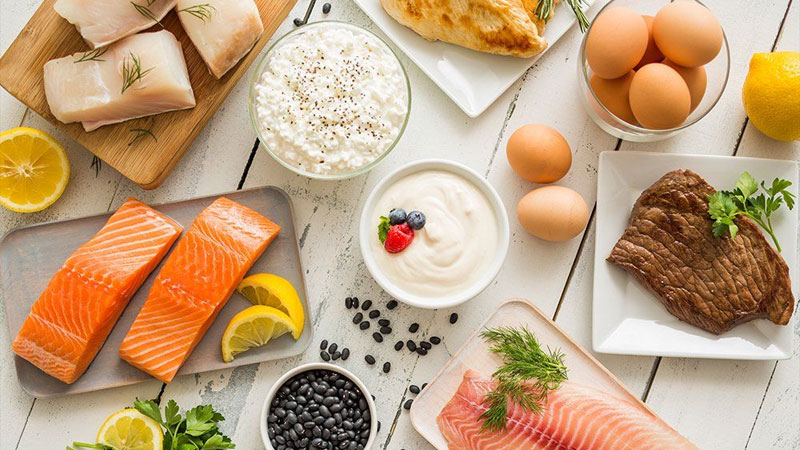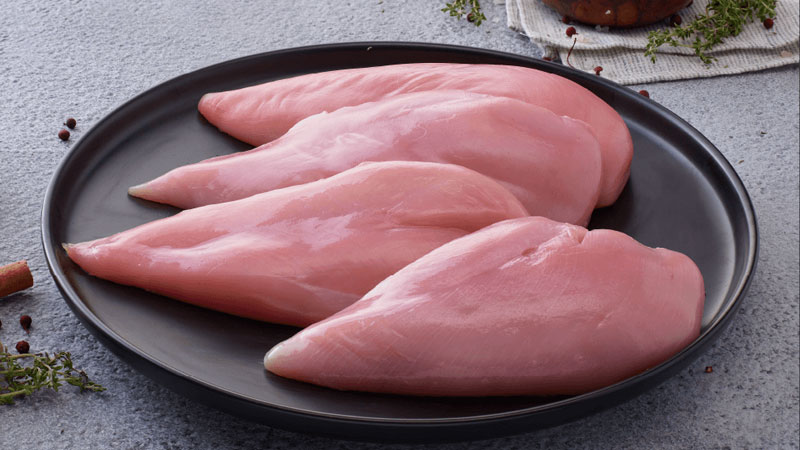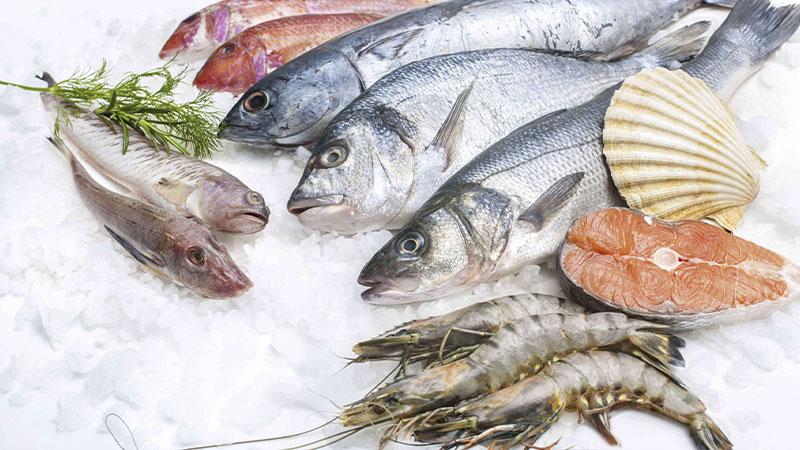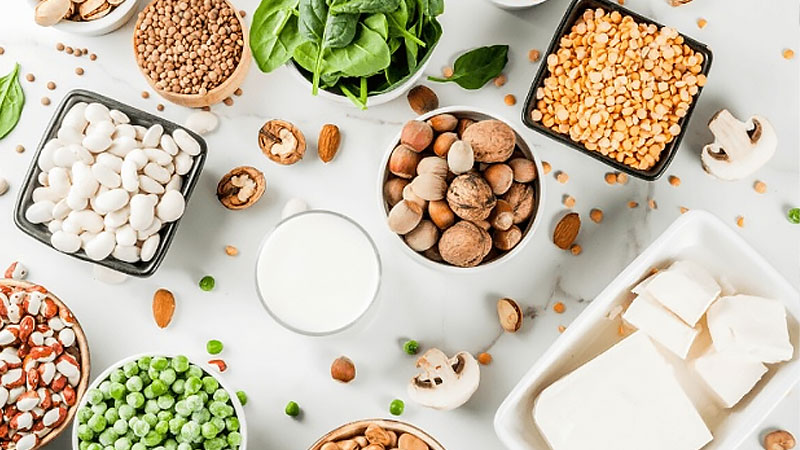Have you ever heard the term “lean protein” and wondered what it meant? Lean protein is simply a type of protein that is low in fat. According to the USDA, a serving of 28g of lean protein contains only about 2-3g of fat.
 Lean protein is a type of protein low in fat
Lean protein is a type of protein low in fat
It is particularly beneficial for muscle growth and repair, making it a favorite among bodybuilders and fitness enthusiasts. Lean proteins are also heart-healthy and weight-friendly due to their low-fat and low-calorie content.
2 Sources of Lean Protein
Animal Sources of Lean Protein
Meat from various animals, such as chicken, turkey, and lamb, are excellent sources of lean protein:
-
Chicken Breast: 100g contains 109 calories, 22g of protein, and 1.6g of fat (including 0.4g of saturated fat)
-
Pork Loin: 100g contains 110 calories, 21g of protein, and 2g of fat (less than 1g of which is saturated fat)
-
Beef Sirloin: 100g provides 150 calories, 22g of protein, and 6.5g of fat (including 2.5g of saturated fat)
-
Lamb Sirloin: 100g contains 115 calories, 20g of protein, and 4g of fat (with 1g of saturated fat)
 Animal sources of lean protein
Animal sources of lean protein
These meats can be prepared in a variety of ways, including grilling, roasting, or stir-frying with sauces, and served with vegetables and whole grains. They can also be added to soups, salads, or sandwiches for a nutritious meal.
Seafood Sources of Lean Protein
Seafood is another great source of lean protein, offering numerous health benefits:
-
Shrimp: 100g contains 85 calories, 20g of protein, and less than 1g of fat.
-
Lobster: 100g contains 75 calories, 17g of protein, and less than 1g of fat.
-
Cod: 100g provides 80 calories, 18g of protein, and less than 1g of fat.
-
Salmon: 100g contains 140 calories, 20g of protein, and 6g of fat (with less than 1g of saturated fat)
-
Tuna: 100g has approximately 100 calories, 22g of protein, and less than 1g of fat.
-
Oysters: 100g offers 80 calories, 9g of protein, and 2g of fat (including 0.5g of saturated fat)
 Seafood sources of lean protein
Seafood sources of lean protein
For fish like cod and sole, try steaming, grilling, or baking to prevent dryness. Oysters are best served raw with lemon, cocktail sauce, or vinegar, while shrimp can be prepared in a variety of ways, including grilling, stir-frying, or boiling.
Other Sources of Lean Protein
There are also plant-based and dairy sources of lean protein that are highly nutritious:
-
Eggs: A large egg contains 70 calories, 6g of protein, and 5g of fat (including 1.5g of saturated fat). Egg whites provide 17 calories, 3.6g of protein, and no fat.
-
Greek Yogurt: 200g of Greek yogurt has 140 calories, 20g of protein, and 4g of fat (including 2.5g of saturated fat)
-
Tofu: 100g of tofu contains 90 calories, 9g of protein, and 4g of fat (with no saturated fat)
-
Lentils: 100g of lentils have 115 calories, 9g of protein, and 0.3g of fat (with no saturated fat)
 Other sources of lean protein
Other sources of lean protein
Eggs are incredibly versatile and can be boiled, fried, scrambled, or added to salads, sandwiches, or sauces. Greek yogurt can be used in salads, as a marinade for meat, or in desserts, paired with fruits.
Tofu can be fried or stir-fried, but for a healthier option, try eating it plain, adding it to salads, or using it in stuffed dishes or steamed dishes. Lentils are great boiled or steamed, and can be added to rice dishes, soups, or salads.
In conclusion, lean protein is an important part of a healthy diet, and there are numerous delicious and nutritious options to choose from. We hope this article has provided you with some valuable insights.
Sources: United States Department of Agriculture (USDA), Broadcasting and Electronic Information Bureau






























